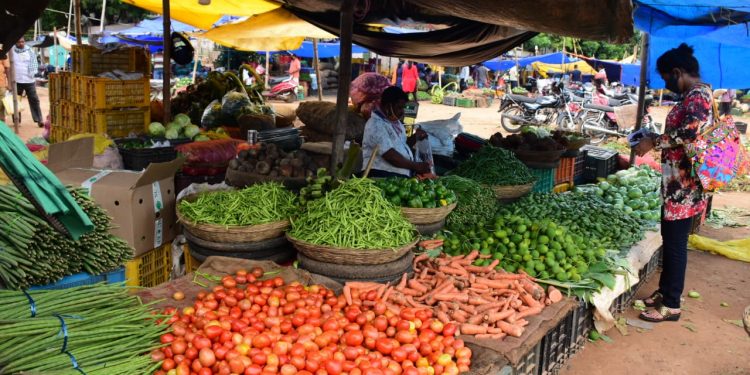Bhubaneswar: As the soaring prices of kitchen essentials continue to burn a hole in common man’s pocket, traders attribute the crisis to the failure of the state government in providing adequate cold storage facilities and monitoring market rates thereby making Odisha increasingly dependent on other states for its vegetable needs.
Vegetable prices, which had started to show a gradual increase during late September this year, entered the fifth week of inflation, Sunday. While okra was being sold at Rs 50 per kg at the beginning of October, it is now available for Rs 70 per kg, registering about a 40% rise in price.
Similarly, the price of tomatoes rose from Rs 45 to Rs 60 in a span of a month. Amongst these, the price of onion rose sharply by 165% from Rs 30 per kg to Rs 180 per kg.
“The increase in price is usually seen during this time of year as people observe the Karthik month by abstaining from non-vegetarian food. However, the yearly rise could be controlled if the government provides enough storage facility within the state. This could reduce our dependence on other states,” Sudhakar Panda, secretary of Odisha Traders Association.
As per sources, the state presently has 40 cold storages. While 140 cold storages had been constructed, only 30 are operational now. Even the operating cold storages have been working only at 25-40% of capacity and have been heavily underutilised leading to increasing dependency on other states for vegetables.
“Take the example of potatoes. Each storage facility has a capacity of 500 metric tonnes, 1.5 lakh Mt in total. While the state’s demand for potato is around 14 lakh tone, the production is about 20,000 tonnes. Some districts that are rich in potato production, such as Koraput, don’t even have any cold storage facility,” explained Odisha Cold Storage Association secretary, Suvendu Sahoo.
Furthermore, traders mentioned unseasonal rains and poor monitoring which have led to an incredible jump in vegetable prices recently. With Odisha’s dependency on three states vis-à-vis Maharashtra, Andhra Pradesh and Karnataka, Covid-19 and unseasonal rains have hindered supply from those regions.






































